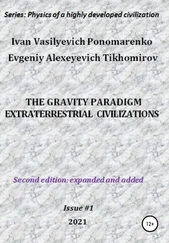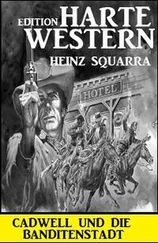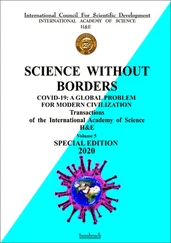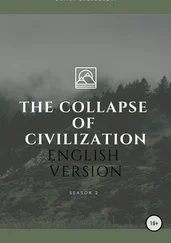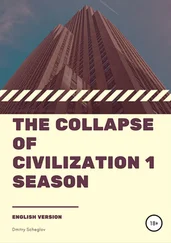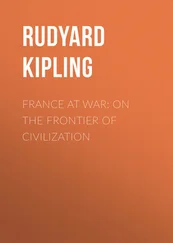Rome, the small city‐state on the banks of the Tiber River in Italy, was now the master of a vast empire that dominated the Mediterranean world. The impact of such success brought a whole host of economic and social changes that fundamentally altered the character of Roman civilization and called into question the ability of republican institutions to govern such a vast empire.
The growth of a vast overseas empire brought both prosperity and increasing stress on the old republican institutions. Three issues in particular became critical during the last century of the Roman Republic. The first problem was how a city‐state could successfully govern such a vast empire. A city‐state was geographically small with a small population and culturally homogeneous. Republican institutions that might work in a very small world were not suited to empires, especially lacking modern communication. A second issue was the question of how Rome could adjust to the economic and social changes caused by the influx of great wealth and the growth of a slave‐based economy. Finally, Rome faced the problem of finding a focus of unity for the empire, as the empire grew and became increasingly more pluralistic and multicultural. Efforts to solve these issues eventually destroyed the Republic.
The growth of empire meant a steady stream of wealth and cheap labor in the form of slaves. Together, they transformed the social and economic life of the Republic. The senatorial class and the equestrians ( equites ) benefitted from the expansion. The equestrians were large landowners, bankers, merchants, and public contractors (e.g. tax farmers) who supplied the needs of the new empire. The lower classes, especially the small farmers, did not benefit. They suffered.
The appearance of large estates, or plantations called latifundia , and the passing of the small independent farmers was a particularly destructive trend. Wealthy landowners acquired public lands, which they turned into large plantations producing cash crops for a commercial market, for example cattle and sheep in southern Italy, or olives and wine in central Italy. These plantations were worked by large gangs of slaves, who were often sold as disposable slaves in the mines when they became old or feeble. It is estimated that approximately one‐third of the population of Italy in the first century BC was slaves.
The small farmers could not compete with the large estates worked by slave labor. They were often forced, by circumstances, to sell out to the large landowners. They then drifted into Rome, where, together with returning veterans, they formed a troublesome and potentially powerful voting bloc. Two brothers, Tiberius and Gaius Gracchus, recognized this potential.
The Gracchi brothers were grandsons of Scipio Africanus, the hero of the Second Punic War. They were reformers in the tradition of the two Greeks, Solon and Cleisthenes. They believed it was necessary to restore the class of independent farmers in order to restore the old Roman virtues. Though of the nobility, they used the office of tribune to become champions of the lower classes.
Tiberius Gracchus (c. 163–133 BC) was elected tribune in 134 BC. His goal was to restore the class of small farmers through a program of land reform. He proposed that public lands acquired illegally by the large landowners should be returned to the state. The state would then give them out in small allotments to the poor. The program would be paid for out of the treasury of Pergamum, willed to Rome in 133 BC by Attalus III.
In pursuit of his goal, Tiberius violated custom by ignoring the Senate and attempting to implement his land reform program through the Plebeian Assembly. Also, his plan to use funds from the treasury of Pergamum violated the tradition of the Senate's control of foreign affairs. Tiberius committed a further offense by standing for reelection as tribune. Tribunes were elected for only one year. Such disregard for accepted traditions alienated the senatorial class. Resorting to violence rather than reason and compromise, a mob, urged on by members of the Senate. killed Tiberius and 300 of his supporters in the summer of 133 BC.
Tiberius' younger brother Gaius (153–121 BC) was elected tribune in 124 BC. He was a more astute politician than his brother. In addition to continuing the land reform policies of Tiberius, Gaius sought other means of helping the lower classes. He founded new colonies on public lands in Italy. Perhaps, most significant, was his plan to stabilize the price of grain in Rome, a matter of critical importance for the poor. The government began buying grain in bulk and then reselling it at fixed prices to the poor. Once begun, no Roman leader to the end of the Empire dared stop subsidizing the price of grain.
Gaius also tried to ally himself with the equestrian class of government bureaucrats and contractors. He initiated road‐building projects and allowed equestrians to participate in the courts that tried officials for corruption. In effect, those who benefitted from corruption became their own judges. A law passed since his brother's death that allowed tribunes to be reelected enabled Gaius to be reelected tribune in 123 BC. Then his fortunes began to change.
Gaius Gracchus' downfall came when he proposed granting citizenship to all of Rome's Italian allies. That was a policy rejected by all of the classes of Roman citizens – senators, equestrians, and lower classes alike. His proposal to found a colony on the site of ancient Carthage was also unpopular. When he stood for reelection to a third term as tribune, he was rejected. Once again, the opposition resorted to violence. Urged on by a consul who offered to pay its weight in gold for Gaius' head, a mob murdered Gaius and 3000 of his followers in 121 BC.
With the passing of the Gracchi brothers, the Republic was plunged into a series of civil wars between popular generals that lasted until 27 BC. The first conflict was between Gaius Marius (157–86 BC), a general of equestrian rank who obtained fame in the Jugurthine War (111–105 BC) in North Africa, and Lucius Cornelius Sulla (138–78 BC) who gained fame in the Social War (91–88 BC) between Rome and its Italian allies. Sulla was a champion of the Senate. When the Senate refused to grant Roman citizenship to allied cities, Italy was plunged into an unnecessary civil war.
The conflict between Marius and Sulla broke out over who would command the Roman legions sent to the Middle East to put down a revolt led by Mithridates (134–63 BC), king of Pontus. Sulla, elected one of the consuls in 88 BC, was given command of the legions by the Senate. The Popular Assembly, ignoring the Senate's choice, elected Marius to command the legions against Mithridates. Sulla marched his legions into Rome, forcing Marius to seek refuge in North Africa. Sulla then left for the Middle East. Marius took advantage of Sulla's absence to capture Rome and put Sulla's supporters to the sword.
After suppressing Mithridates with a systematic brutality that would become his trademark, Sulla returned to Italy in 83 BC to renew the civil war with Marius' followers; Marius having died in 86 BC. A list of between 2000 and 9000 of Marius' followers was published. They could be freely killed and their property seized and distributed to Sulla's supporters. Sulla declared himself dictator for an indefinite term and began instituting reforms aimed at restoring the Senate to power, before retiring to private life on his country estate in Campania.
Perhaps the most fatal consequence of the struggle between Marius and Sulla was a fundamental change in the Roman army, introduced by Marius. Historically, the Roman legions were conscripted for short‐term duty from among the property‐owning citizens. Marius changed that practice when he began recruiting soldiers from among the propertyless poor for long‐term enlistments. Professional armies recruited by the generals replaced the citizen soldiers of the early Republic. This resulted in a basic shift in the loyalty of the legions from the Republic to the general who recruited them, and to whom they looked for their pay, a share in the booty from successful campaigns, and a grant of land to retire on when their enlistment was over. Such “professional” armies could be, and were, used by ambitious generals against the Republic.
Читать дальше




